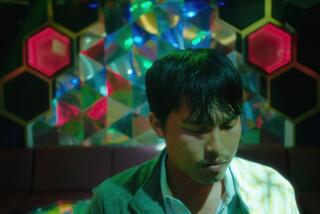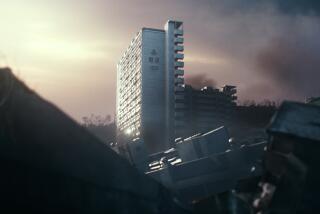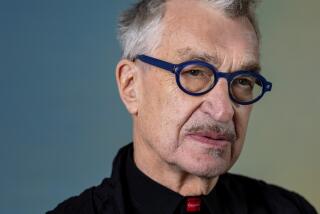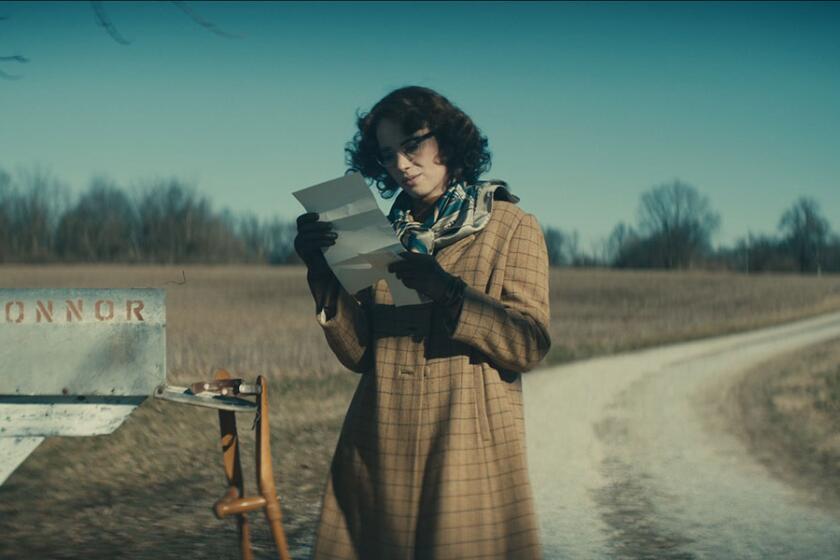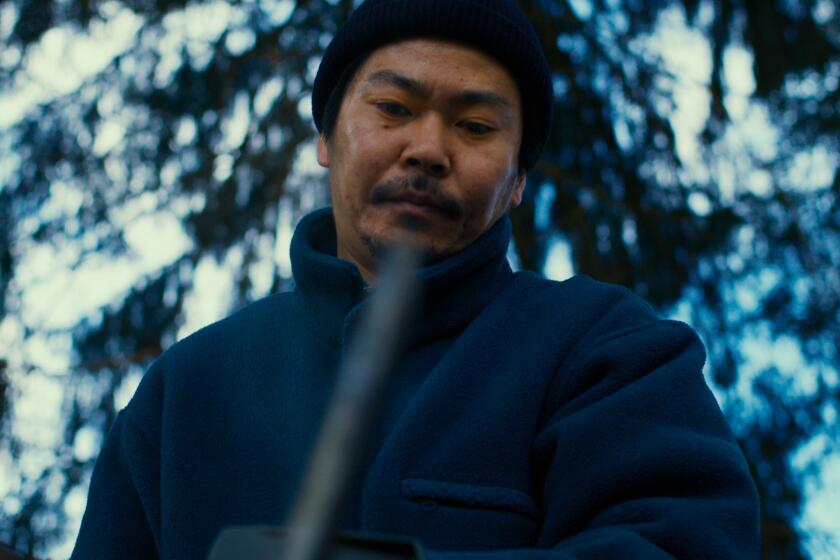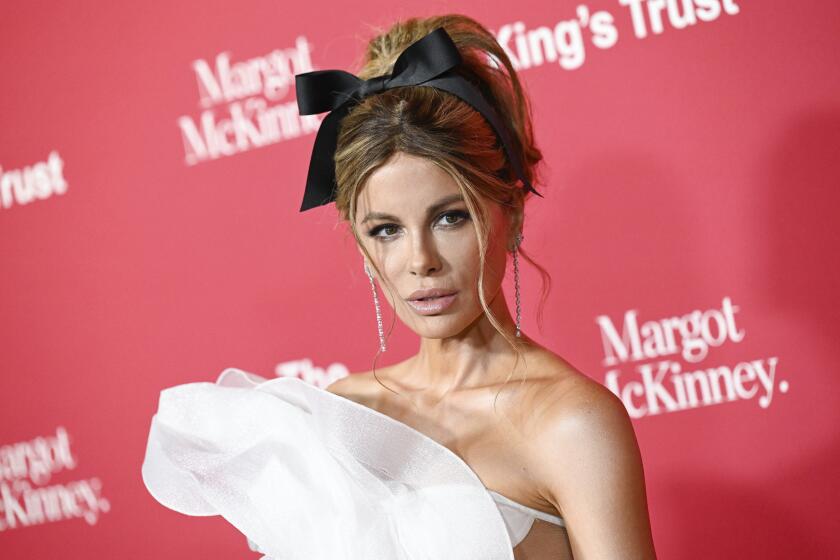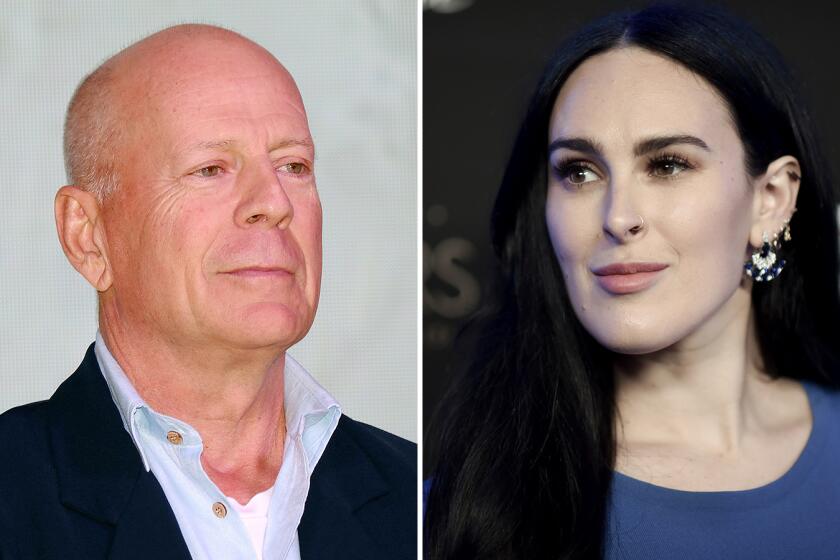Why Hou Hsiao-Hsien made ‘The Assassin’ so elliptical
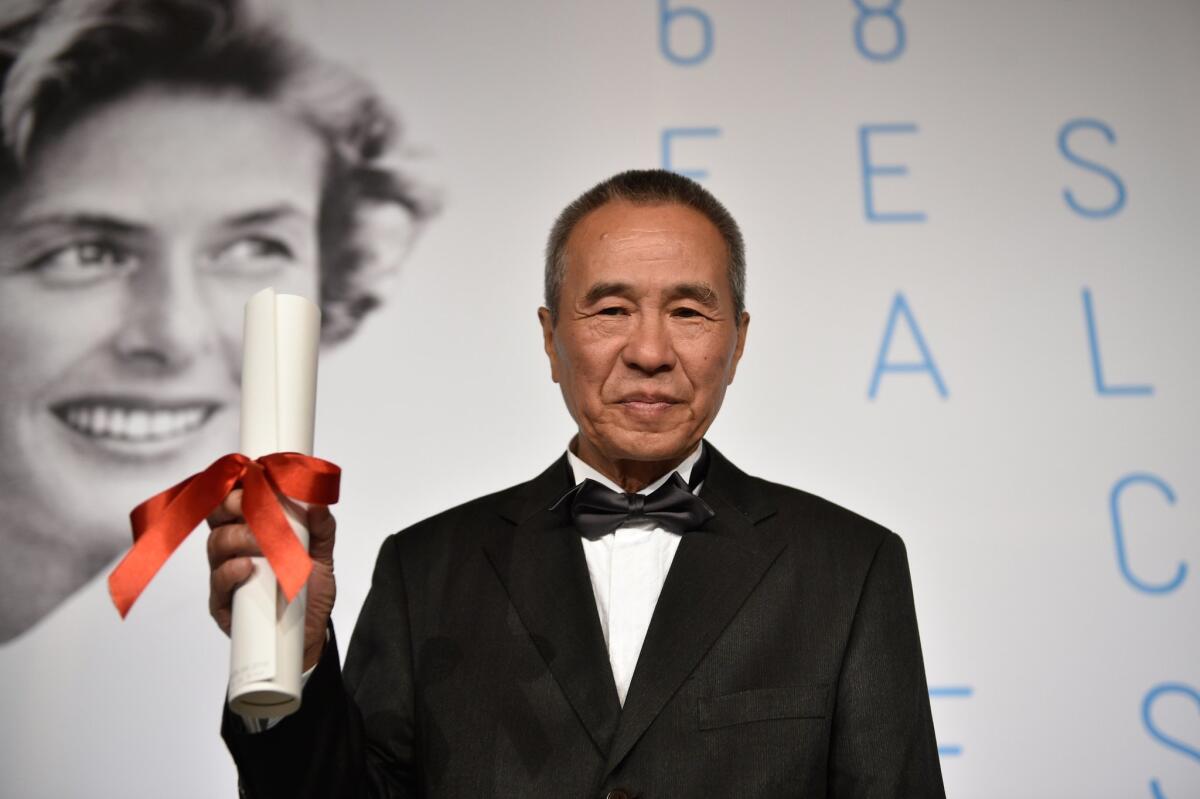
Director Hou Hsiao-Hsien, winner of the Best Director Prize for his film “Nie Yinniang” (“The Assassin”), attends the Palm D’Or Winners press conference during the 68th annual
Hou Hsiao-Hsien -- the Taiwanese auteur who on Sunday won the director’s prize at the Cannes Film Festival -- was widely praised for his elliptical storytelling in his new film “The Assassin.” The wuxia-flavored movie examines a killer whose motives and manipulations, like so many others in the story, can be abstruse, and Hou was feted for the abstracting elements.
But the movie’s feel might have been less a matter of conscious design than it appears. Asked in an interview why “The Assassin” ended up so narratively elusive, Hou replied:
“I shot a lot of footage Something like 500,000 feet. When I looked at the footage and realized I didn’t need that much, I cut a lot of it out. Because I only accepted some of the final footage,” he added, “it flowed in an elliptical way.”
INDIE FOCUS: Sign up for our weekly movies newsletter
Set at the end of China’s Tang Dynasty and inspired by a well-known legend, the movie centers on a skilled assassin (Shu Qi) dispatched to kill an important political figure who is also her cousin and former lover. But plot can often ride shotgun to the movie’s exacting visual style; the story is conveyed via long takes and no exposition, as if one is watching a series of paintings coming to life.
One of the few narrative moments comes at the beginning, with an explainer about the political situation at that historical moment in China. As it turned out, that nearly didn’t make it into the film either.
“Wild Bunch [the French sales agent] was worried people wouldn’t understand the film so they asked me to put it in,” he said with shrug.
Hou was in his trademark ballcap, answering questions via a translator with a degree of casualness in a restaurant at Cannes. His movie had attracted strong supporters who marveled at the sense of style and rigor but also some laments that it was hard to sink one’s teeth into. If Hou was aware of the criticism, he wasn’t copping to it. “I’m pleased they seemed to understand it once I put in the intro,” he said.
As a complement of sorts to the narrative economy, the movie also has a spareness on the martial arts side; in contrast to the quick cuts of most films, “The Assassin” is efficient and languorous. Hou is more typically a director of low-boil dramas, and he said he wanted to replicate that approach with his move to martial arts.
“I don’t like the floral style of fighting,” he said. “Everything needed to be rooted in reality. The rule was every action has to fit the character so there’s never the extraneous details you see in other martial arts movies.”
Hou said depending on how this film fares commercially, he’ll go either smaller or more epic with his next movie and is preparing for either possibility. (He said Taiwan’s public television broadcaster has asked him to make a feature-length movie inspired by a story from Taiwanese history, and that could well be his next project.)
Because it had been eight years since his last film (the French-set “The Flight of the Red Balloon”), a mystique of sorts has grown up around Hou -- director of movies such as “City of Sadness,” “The Puppetmaster” and “Flowers of Shanghai” -- who earlier in his career would often complete a film every other year.
------------
For the Record
May 26, 7:55 p.m.: An earlier version of this version said it has been seven years since Hou Hsiao-Hsien’s last film. It has been eight years.
------------
But the 68-year-old did not give the vibe of a man slaving away, mad-scientist style, in an editing room, cutting and recutting with the fury of a thousand Malicks. He noted that the lag was attributable to a more banal factor.
“The reason I took so long,” he said, “was because I was working on a film festival [he was for a number of years chairman of the Taipei Film Festival as well as on the executive committee of the Taipei Golden Horse Film Festival n his native Taiwan.] And I didn’t feel comfortable taking another job while I was doing that.”
Sometimes a horse is just a horse -- albeit beautifully composed, framed and shot.
Twitter: @ZeitchikLAT
More to Read
Only good movies
Get the Indie Focus newsletter, Mark Olsen's weekly guide to the world of cinema.
You may occasionally receive promotional content from the Los Angeles Times.
